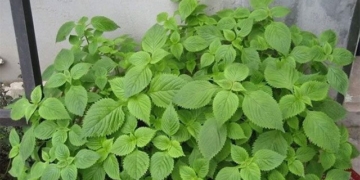The skin is mottled with patches of new skin interspersed with dead, grayish skin, resembling that of a person with severe burns. This is the condition of many patients suffering from allergies to traditional herbal medicine at the Allergy and Clinical Immunology Department of Bach Mai Hospital in Hanoi.
 |
| Allergy treatment at Bach Mai Hospital (Photo: SK & DS) |
– Dr. Nguyen Van Doan from the Allergy and Clinical Immunology Department stated that in the past month, the department has admitted dozens of patients suffering from allergies to traditional herbal medicine who required hospitalization for treatment.
– Mrs. Khuc Thi Toan (66 years old, from Van Lam, Hung Yen) suffers from arthritis and took herbal medicine from a local herbalist. After some time, her condition improved significantly. Recently, her symptoms recurred, so she switched to another herbal remedy. Not seeing any improvement, she returned to the original medicine. Just 3-4 days later, she began to experience itching followed by swelling in her limbs and face. Doctors diagnosed her with an allergy to traditional herbal medicine.
– Mr. Vu Trung Thanh (43 years old, from Nam Dinh) suffers from chronic asthma. Hearing recommendations from others, he visited a local herbalist to buy herbal medicine to use alongside his prescribed Western medication. After 20 days, he developed widespread itching, rashes, and then blisters that ruptured, leaving him in significant pain and weakness.
– Mr. Nguyen Tien Luyen (22 years old, from Hai Duong) experienced allergic itching and asked someone to buy herbal medicine for him. As he was nearing recovery, he caught a cold and began taking Western medicine for it as well. Two days later, he developed painful blisters on his skin as if he had suffered burns.
According to Dr. Nguyen Van Doan, traditional herbal medicine can also cause allergic reactions. Typically, these reactions occur later, after 10-20 days, manifesting as serious clinical symptoms such as widespread redness, erythema multiforme, allergic dermatitis, toxic reactions, and Stevens-Johnson syndrome. Common symptoms include rashes, fever, itching, and blisters, leading to ulceration in natural body cavities. Allergic reactions to traditional herbal medicine are often more severe than those from other types of medication due to potential internal organ damage, such as to the liver and kidneys, making treatment more complicated.
In recent years, the number of cases of allergies to traditional herbal medicine has been increasing, mostly due to indiscriminate use. Many patients hastily purchase herbal remedies upon hearing about a herbalist who has an effective treatment. This poses significant risks, as any ailment requires a clinical examination, and often tests are necessary to identify the underlying cause before prescribing medication. The herbalist must also monitor the treatment process to adjust prescriptions accordingly. Every type of medication has contraindications and interactions; self-medicating with multiple types of medicine simultaneously increases the risk of allergies.
Many traditional herbal medicines are treated with preservatives, which can also be a factor in allergic reactions. Furthermore, for profit, some herbalists mix modern pharmaceuticals into their remedies to achieve quicker effects, leading to unpredictable long-term consequences. Currently, there are no studies on the interactions between traditional herbal medicine and Western medicine, but doctors recommend not to use both types simultaneously without specific guidance.



















































